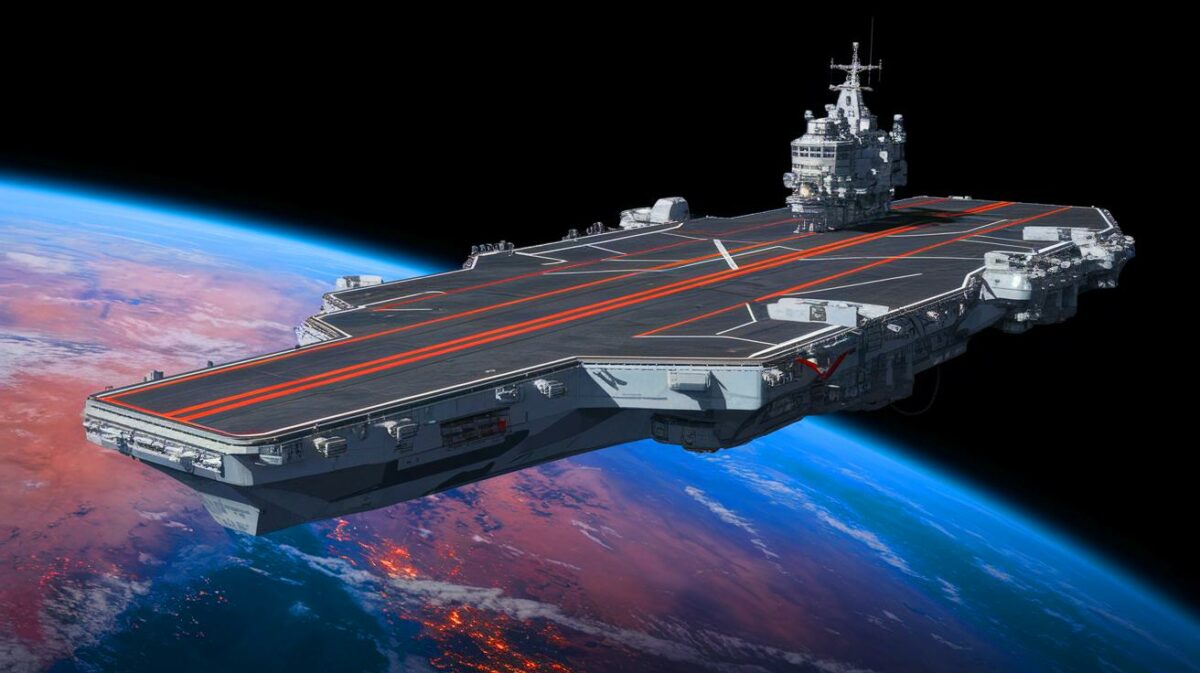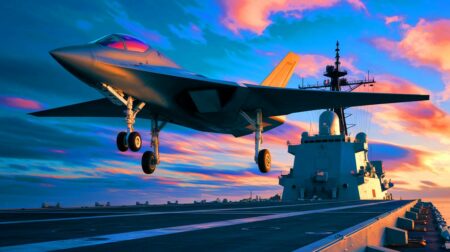| IN A NUTSHELL |
|
The race for space superiority is heating up as the United States Space Force embarks on a groundbreaking project that could reshape the future of satellite deployment. At the heart of this initiative is the creation of an orbital aircraft carrier, a concept spearheaded by the innovative aerospace startup Gravitics. This ambitious project underscores the critical importance of space as a strategic domain and highlights the growing role of private enterprises in national defense efforts. As tensions mount on the international stage, the United States is making a bold statement by investing in technologies that aim to secure its dominance in space.
The Orbital Aircraft Carrier: A Strategic Innovation
Gravitics has secured an impressive $60 million contract from the U.S. Space Force to develop an orbital aircraft carrier. This revolutionary platform is designed to launch satellites directly from Earth’s orbit, providing a faster and more efficient response to national security threats. By bypassing traditional rocket launches, the orbital carrier enhances the military’s operational agility in space.
This initiative reveals the growing interest of the U.S. military in enhancing its orbital presence, especially as the specter of a “space arms race” looms. The concept is to have a pre-positioned platform in space that can swiftly deploy satellites based on strategic needs. This innovation not only addresses current security challenges but also positions the United States as a leader in space technology.
Breakthrough air-powered tech claims to recycle 94% of plastic in just 4 hours using moisture
The Quest for Space Superiority
According to Gravitics officials, the orbital aircraft carrier will offer an unpressurized environment to house one or more satellites. These satellites can be launched as needed, while being shielded from the hostile space environment, thus protecting their batteries and sensitive electronic components. This ability to isolate and protect is vital in an era where electronic warfare and cyber threats are pervasive.
Furthermore, the orbital carrier may help conceal satellites from adversaries, adding another dimension to the strategy of space superiority. As Colin Doughan, CEO of Gravitics, stated, “the orbital aircraft carrier is a game-changer, acting as a pre-positioned launch platform in space.” This aligns perfectly with the Space Force’s mission to maintain a dominant position in orbit.
Implications for the Space Industry
In addition to developing this orbital carrier, Gravitics is collaborating with Axiom Space on a pressurized space module. This diversification into national defense highlights the company’s growth trajectory while continuing to offer commercial solutions. Gravitics’s vision for space superiority aligns with the Department of Defense’s needs, paving the way for new market opportunities.
This evolution underscores the increasing importance of public-private partnerships in the space sector. By integrating innovative technologies, Gravitics and other private entities bolster the United States’ space position while driving the development of novel technologies that could have civilian applications.
Toward a New Space Era
With technologies like the orbital aircraft carrier emerging, we are witnessing the dawn of a new era in space exploration and exploitation. This technological leap could redefine security, surveillance, and communication paradigms. The implications are vast, potentially transforming not only military operations in space but also the role of private companies in this dynamic.
As the Space Force and companies like Gravitics prepare for future challenges, it is crucial to ponder the future of international space cooperation. How will these innovations shape relations between nations? More importantly, how can we ensure that space remains a domain of shared peace and progress?
Did you like it? 4.3/5 (21)









Wow, an orbital aircraft carrier sounds like something out of a sci-fi movie! 🚀
Believe it or not, NOT.
So, who’s gonna clean up the space debris if this thing crashes? 🤔